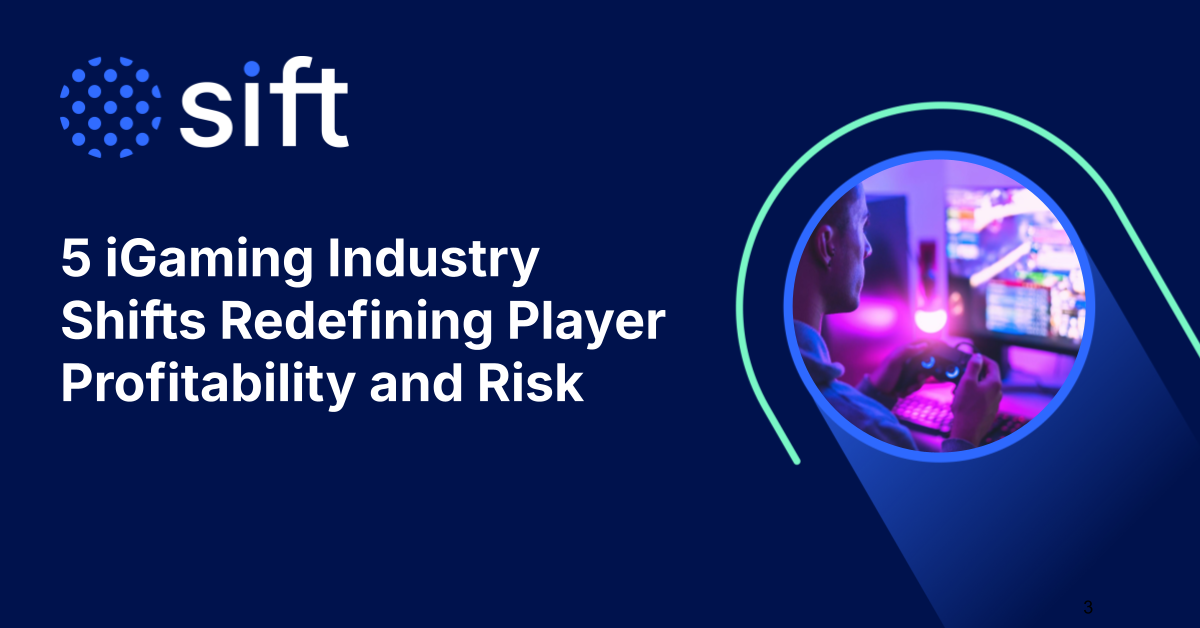Agentic commerce is the next evolution of AI in commerce. It’s an emerging term that refers to the use of AI agents that act on behalf of consumers to perform tasks, make decisions, and execute transactions in e-commerce environments.
Unlike traditional AI tools, which require direct input for each interaction, agentic systems operate with a degree of independence. They can analyze data, learn from context, and adapt to new scenarios in real time. This initiative is already in testing at both Mastercard and Visa with Mastercard Agent Pay and Visa Intelligent Commerce. Yet while this emerging model further reduces user friction, improves user experiences, and enables businesses to more effectively scale their offerings, the shift also comes with new risks.
Because agentic systems operate independently, they could be manipulated into making unauthorized purchases, sharing personal information, or falling for fraudulent prompts. The promise of convenience is high, but agentic commerce introduces fraud potential that consumers may not see until after harm occurs. As AI capabilities expand, businesses will need to balance this innovation with safeguards to ensure these autonomous agents do not exploit the people they’re designed to serve.
What Will Agentic Commerce Look Like?
The core premise of agentic commerce is AI agents that act more independently of the humans they serve. The goal is to simplify the shopping experience with agents that know when a customer needs something and when it needs to be ordered. These AI agents learn from prior experiences, growing and changing with the evolving needs of the consumer.
An example of this would be an agent using a consumer’s purchasing patterns for staple items like laundry detergent, ordering more automatically so the consumer is never left without. Another, less automated example would be an agent combining all available prices for flights to a certain location at a certain time, ensuring that a customer gets the best possible rate within parameters. It’s important to note that these agents become more effective and accurate over time as they absorb customer purchasing patterns and preferences.
Agentic commerce is no longer a theoretical commerce innovation: according to Gartner, by 2028, 33% of enterprises are expected to adopt agentic AI in their operations, signaling a broad shift in how businesses approach automation and customer engagement. The goal is a more responsive, scalable, and personalized commerce ecosystem driven by AI agents acting with autonomy and accountability.
What is the Difference Between E-Commerce Agents and Bots?
The key difference lies in autonomy and intelligence.
E-commerce bots are reactive, responding to direct inputs with predefined actions, such as answering FAQs or assisting with order tracking. In the agentic model, e-commerce agents are proactive and adaptive, interpreting intent, making decisions, and initiating actions across multiple channels without constant prompts.
While a bot might only answer a question or track a package, an agent can take care of the entire shopping process by identifying what their consumer needs, finding the best deals, completing checkout, and managing delivery or returns. Agents improve over time through exposure, keeping them relevant and making them more effective and context-aware than traditional bots.
Insights From 2,700 Commerce Leaders
From a business perspective, a recent survey from Salesforce of 2,700 commerce leaders revealed that businesses have growing interest in the strategic use of AI across retail, marketplaces, and digital platforms. Respondents identified personalization, operational efficiency, and fraud detection as top priorities for AI integration, with many already experimenting with many already experimenting with agentic capabilities to make shopping more input-free, like offering more transparency on which items are in stock, providing personalized recommendations based on customer preferences, and delivering faster, more relevant offers.
The research also highlights a shift from viewing AI as a support tool to recognizing it as a strategic partner capable of driving revenue and progress. Businesses are always preparing for the next big market shifts, and for the next wave of AI adoption, agentic commerce is a key area of investment and experimentation.
5 Attributes of an E-Commerce Agent
E-commerce agents differ from traditional tools because they’re built to operate autonomously, adapt, and integrate across multiple platforms. These five core attributes define how they function:
- Role: Each agent is designed around a specific task, like finding the best price for a product, service, providing accurate recommendations products, or keeping staple products supplied.
- Data: Agents learn from past purchases, browsing patterns, and trusted sources to deliver personalized, relevant suggestions.
- Actions: Instead of waiting for a click, agents can reorder essentials, apply coupons, or track shipments automatically, saving time and effort.
- Guardrails: Regular safety checks make sure agents don’t share sensitive data or approve unwanted or inappropriate purchases. This in turn keeps information and money protected.
- Channel: Agents must operate across channels (websites, apps, messaging platforms) in order to understand preferences and requirements. This helps the agent make more informed decisions, but, because of the amount of information it is privy to, also requires increased security.
Agentic Commerce for Consumers: Convenient but Vulnerable
From a consumer perspective, agentic commerce offers enticing possibilities, like automatically reordering groceries when supplies run low, negotiating the best price for travel bookings, or managing subscriptions without the need for constant oversight. Agentic systems can save time, deliver savings, and simplify shopping.
Yet the same autonomy that makes these agents powerful exposes consumers to new fraud risks. AI agents can be tricked by fake product listings, manipulated reviews, or spoofed seller accounts. They may authorize purchases on the consumer’s behalf without their knowledge, or allow access to payment details if compromised, unintentionally exposing financial information to fraudsters. Social engineering, misleading prompts, and adversarial attacks on AI models all present pathways for abuse.
For consumers to embrace agentic commerce, trust and security must be foundational. Without clear safeguards, the line between convenience and exploitation could blur, leaving everyday users more vulnerable to scams than ever before. Businesses seeking to facilitate agentic commerce agents should invest in fraud protection services like Sift that recognize unusual purchasing patterns, “flagged” users, fraudulent transactional histories, and more.
Agentic Commerce and its Risks
While agentic commerce is grabbing headlines, businesses should be cautious of potential pitfalls before adopting AI-driven agents at scale. The three major risks are:
1. User Data Influences Decisions, Without the Users: AI agents may act on personal data without direct user oversight, potentially leading to purchases or agreements the customer never explicitly approved. This can raise privacy concerns and compliance issues.
2. Increased Exposure to Fraud: Because agents can operate across multiple platforms like shopping apps, payment gateways, and social networks, they expand the attack surface for fraudsters. If one channel is compromised, it may give attackers control over all connected transactions.
3. Opening the Door to Social Engineering: AI can be manipulated, and fraudsters could use misleading prompts, fake reviews, or spoofed communications to gain access to sensitive information. If the agent can’t distinguish between legitimate and malicious inputs, it may unintentionally facilitate scams.
What Are the Benefits of Agentic Commerce?
Agentic commerce has the potential to change the average shopping experience by letting AI-powered agents manage every step, like anticipating needs, making informed decisions, and handling logistics.
1. Convenience and Efficiency
AI agents will tirelessly collect and evaluate product and pricing data, eliminating the need to browse, compare, or wrestle with decisions. This should dramatically reduce time spent on shopping while maintaining high accuracy and relevance.
2. Accurate Personalization
AI agents will learn user habits and preferences by gleaning data from past purchases, browsing trends, and behavioral cues. Whether it’s restocking essentials or finding new gadgets, recommendations should become deeply tailored to individual users.
3. Smarter Deals and Savings
Rather than settling for surface-level discounts, AI agents will hunt down the best offers. They have the potential to analyze reviews, track pricing shifts, negotiate with sellers, and apply coupons automatically, ensuring the best value with minimal effort.
4. End-to-End Shopping Assistance
Once an agent selects a product, it will also handle checkout, shipping, tracking, and if needed, returns. Consumers won’t need to manage logins, fill in forms, or call support, because everything would be automated based on user preferences.
Get Started with Agentic Commerce
Implementing agentic commerce starts with identifying the right use cases and building a framework for responsible AI deployment. Challenges such as data readiness, governance, and agent accountability must be addressed early in the process.
As AI agents become more advanced, their role in solving complex business challenges will only grow. They can quickly analyze large volumes of data, identify patterns invisible to humans, and take immediate action across commerce systems. This level of automation improves performance, but also frees up teams to focus on high-impact, strategic work. Businesses that begin investing in agentic commerce today (alongside powerful fraud prevention software) will be better positioned to adapt to future demands, outpace competitors, and deliver trusted digital experiences at scale.







